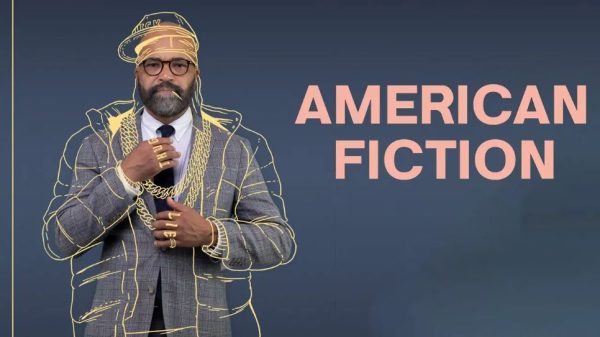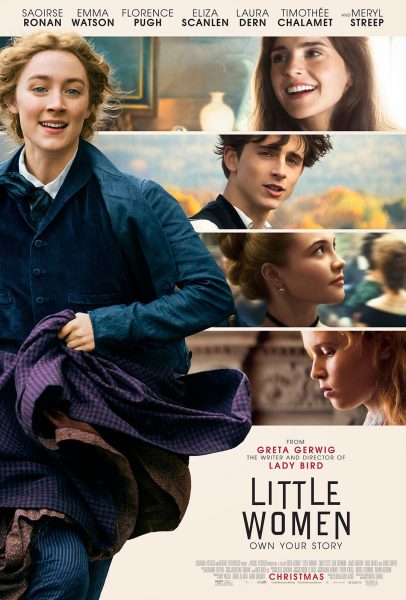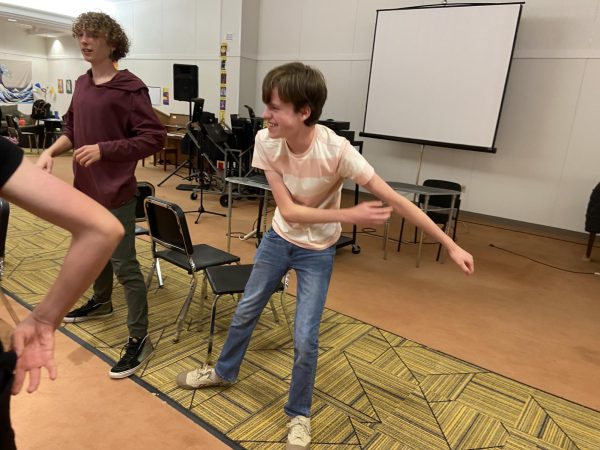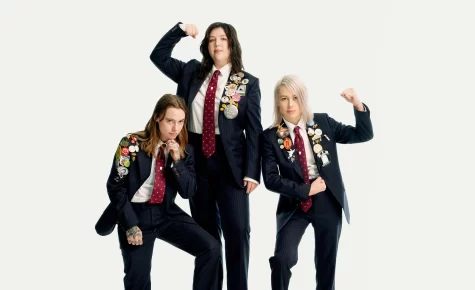Meet Taylor at midnight
November 16, 2022
Have you ever given up on trying to fall asleep and ended up reflecting on the key moments of your life? Taylor Swift’s 10th studio album, “Midnights”, is framed around these sleepless nights, and with 13 tracks she gives us a lens into the insomnia-fueled spirals she’s had throughout her life. Breaking a handful of records, like becoming the most streamed album in a single day on Spotify and selling the most albums in a week for any album ever, this anticipated album essentially broke the internet– and for good reason.
Songs written about every era of her career tie in all of her past albums to create the melting pot that is “Midnights”. Even while using a new synth sound that’s unlike her previous work, any fan can recognize the callbacks to songs and lyrics from years past.

The first track, “Lavender Haze”, is a poppy bittersweet tune about being so in love that you just want to take your relationship and hide it from the harsh critics of the world. It’s a proper introduction to an underlying, but still major theme of the album: what is perceived vs what is the truth. The bridge sounds identical to track six, “I Think He Knows”, on her 2019 album “Lover”.
In track three, “Anti-Hero”, Swift’s deepest fears manifest into lyrics. She frets over nightmare scenarios like her family killing her so they can acquire her fortune or the love of her life leaving her. She sings, “I wake up screaming from dreaming one day I’ll watch as you’re leaving, ‘cause you got tired of my scheming for the last time.” In an Instagram video Swift explained that she had never delved as far into her insecurities as she did in “Anti-Hero”. “Did you hear my covert narcissism I disguise as altruism like some kind of congressman,” is a favorite lyric of mine.
She dares us to view her as the villain in “Mastermind”, revealing her controlling tendencies that have strategically built her life and her compulsive need to be liked by everyone. “No one wanted to play with me as a little kid, so I’ve been scheming like a criminal ever since, to make them love me and make it seem effortless,” she sings. It’s a glittery song, opening with an arpeggiating synth that reminds me of a video game background (in a good way). I like the juxtaposition between the playfulness of the music and the surprisingly deep lyrics during the bridge.
“Karma”, track eight, is a fun, feel good song that feels like saying affirmations in the mirror. It has an upbeat tone, a high pitched breathy chorus and an overall sugary sweet sound.
Some songs were more forgettable like “Labyrinth”, which just didn’t stand out to me, and “Snow on the Beach”. Fans were promised a feature of Lana Del Rey and received backup vocals that are so heavily layered with Swift’s that it’s impossible to know if Del Rey is actually singing.
The devil works hard, but Swift works harder. After she released the album at midnight on October 21, she released seven extra songs called the “3 am Tracks”. Still fitting the overall stylistic theme of “Midnights”, they blend into the rest of the album seamlessly. One of the “3 am Tracks”, titled “Would’ve, Could’ve, Should’ve”, became one of my favorite Swift songs of all time. I’m offended it was left off of the album and reduced to a bonus track. Clearly a follow up to “Dear John”, a track off of her 3rd studio album, “Would’ve, Could’ve, Should’ve” is an emotionally raw recount of Swift’s relationship with John Mayer, when he was 32 and she was 19. The lyrics: “I damn sure never would’ve danced with the devil, at nineteen,” parallel the lyrics in her earlier song “Dear John”: “Don’t you think nineteen’s too young to be played by your dark twisted games, when I loved you so?”
The use of religious imagery in this song really took me by surprise. Even though Taylor is a Christian, using it as a tool in her lyricism is not something she is known for. She references it often singing, “You’re a crisis of my faith” and “God rest my soul, I miss how I used to be.”
“Would’ve, Could’ve, Should’ve” feels extremely honest, like a diary entry that starts soft and vulnerable and gets progressively more furious as you dig deeper and deeper into your emotions. Her wailing vocals and the dramatic tempo build up to the climax of the song with Swift scream-singing, “Give me back my girlhood, it was mine first!”
Swift experimented a lot more with voice distortion on “Midnights”, which I am sad to say I am not a fan of. In the beginning and chorus of “Midnight Rain”, her voice is severely edited to be lower, slower and overall sound like she’s in a reverb chamber. Don’t get me wrong, she’s a musical genius and probably had some really amazing thought process behind using autotune, but it’s just not for me.
As is with all of Swift’s music, the true artistry lies in her lyricism. She has a beautiful voice and great production (thanks Jack Antonoff!), but above all else she is a poet. Her ability to use her lyrics to connect to her fans is incredible. She writes about specific experiences and stories, but somehow they are universally understandable and relatable. She has so much range in her music that I think everybody can find something they like. I would definitely recommend giving “Midnights” a listen.















